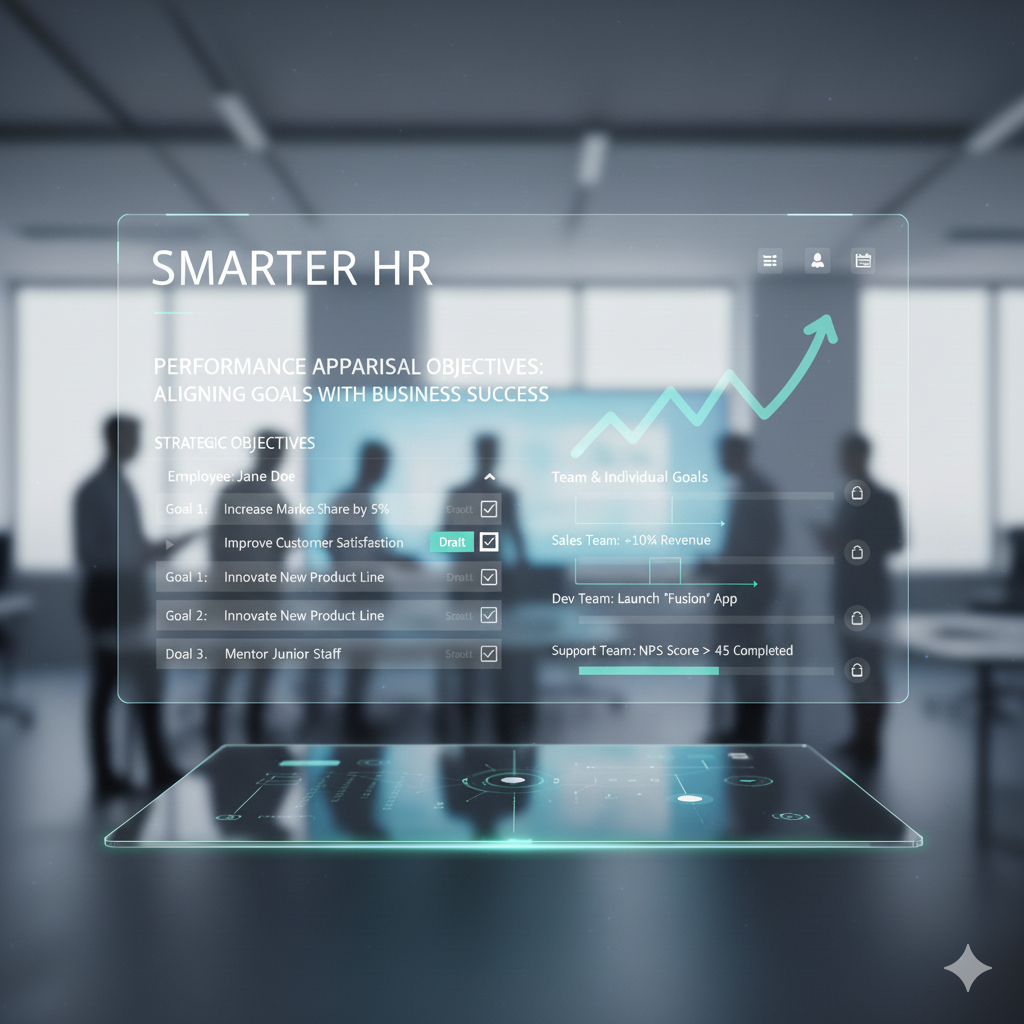Address
Kaypian, San Jose Del Monte City, Bulacan Philippines
Work Hours
Monday to Friday: 8AM - 6PM
Weekend: 10AM - 5PM
Address
Kaypian, San Jose Del Monte City, Bulacan Philippines
Work Hours
Monday to Friday: 8AM - 6PM
Weekend: 10AM - 5PM


Integrated HR. Accurate Payroll.


Integrated HR. Accurate Payroll.

In today’s fast-paced workplace, performance appraisals are no longer just annual reviews—they are continuous processes designed to drive employee engagement and align individual contributions with organizational success. When integrated into a Human Resource Information System (HRIS), performance appraisal objectives become more structured, measurable, and impactful.
This article explores the importance of performance appraisal objectives, how HRIS transforms them, and why aligning them with business success is critical for long-term growth.
Performance appraisal objectives define the purpose and outcomes of the employee evaluation process. They guide HR teams, managers, and employees in ensuring that performance reviews are not just about rating employees, but about achieving meaningful results. Key objectives include:
Traditional appraisal methods often fail to achieve these objectives due to:
These limitations often lead to disengagement, inaccurate performance data, and misalignment with business goals.
Modern HRIS platforms address these challenges by digitizing and optimizing the appraisal process. Here’s how:
When appraisal objectives are managed through HRIS and tied directly to business strategy, organizations can:
Integrating performance appraisal objectives into HRIS is a game-changer for organizations that want to align employee performance with business success. By shifting from outdated, subjective reviews to data-driven, transparent evaluations, companies can build stronger teams, boost productivity, and gain a competitive edge.
Smarter HR starts with smarter systems—and HRIS is the key to making performance appraisals meaningful, fair, and strategically aligned.